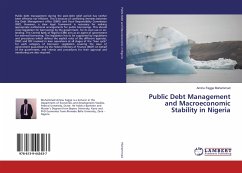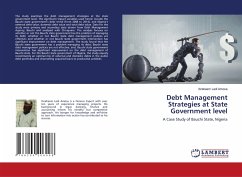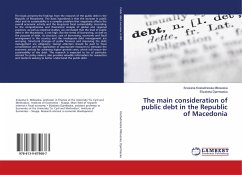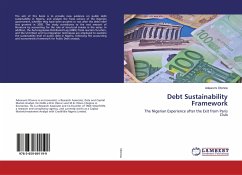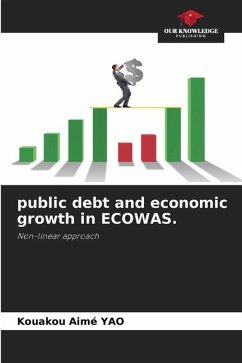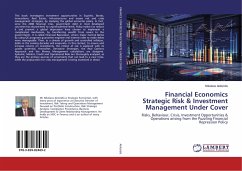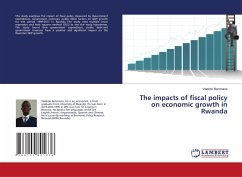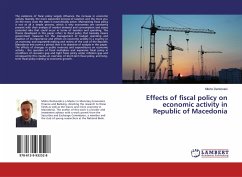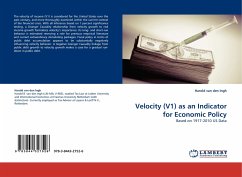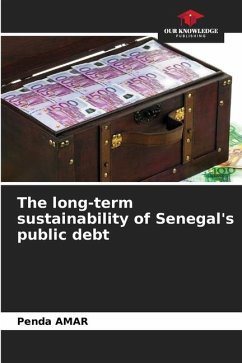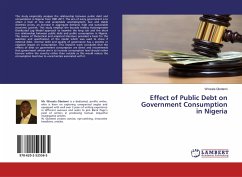
Effect of Public Debt on Government Consumption in Nigeria
Versandkostenfrei!
Versandfertig in 6-10 Tagen
27,99 €
inkl. MwSt.

PAYBACK Punkte
14 °P sammeln!
This study empirically analyses the relationship between public debt and consumption in Nigeria from 1981-2017. The aim of every government is to attain a level of low and acceptable unemployment, low and stable domestic prices, an increase in aggregate demand, high and sustainable economic growth. This study employs the bounds testing Autoregressive Distributed Lag Model approach to examine the long run and the short run relationship between public debt and public consumption in Nigeria. The review of theoretical and empirical literature provided a basis for the selection and specification of...
This study empirically analyses the relationship between public debt and consumption in Nigeria from 1981-2017. The aim of every government is to attain a level of low and acceptable unemployment, low and stable domestic prices, an increase in aggregate demand, high and sustainable economic growth. This study employs the bounds testing Autoregressive Distributed Lag Model approach to examine the long run and the short run relationship between public debt and public consumption in Nigeria. The review of theoretical and empirical literature provided a basis for the selection and specification of the model which was used to show if external debt, internal debt and quality of governance has a positive or negative impact on consumption. This research work concludes that the effects of debt on government consumption are direct and recommends that government whose aim is to increase consumption level should rather borrow within the country rather than outside as this would reduce the consumption level due to uncertainties associated with it.



